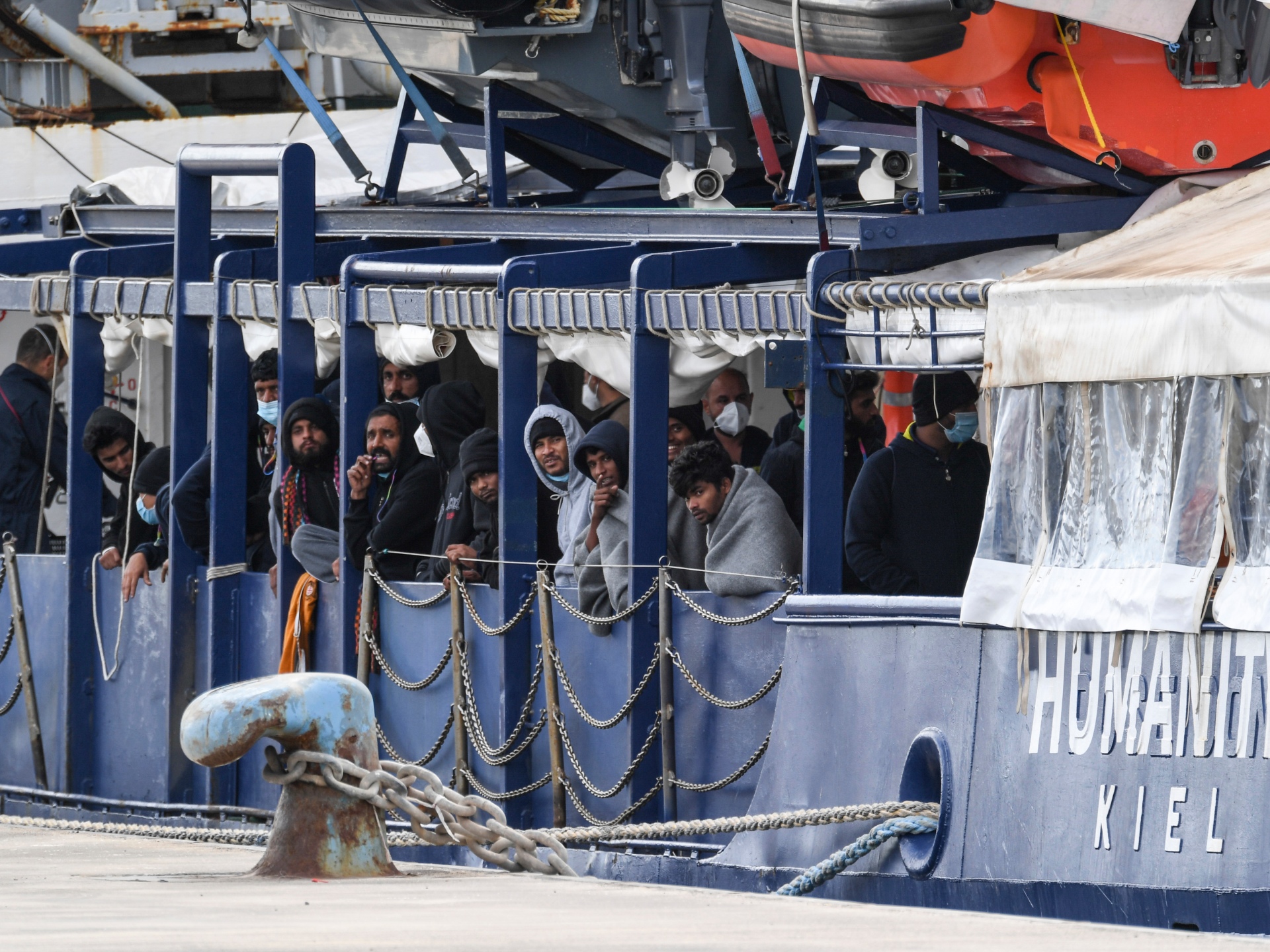New measures could see charities who rescue asylum seekers at sea fined and their ships impounded.
Italy’s right-wing government has approved new measures to fine charities who rescue asylum seekers at sea and impound their ships if they break new rules, possibly putting thousands of people’s lives in danger.
A cabinet decree on Thursday said these ships should request a port and sail to it “without delay” after a rescue, rather than remain at sea looking for other boats in distress.
The missions of charities, or non-governmental organisations (NGOs), currently stay several days in the central Mediterranean, completing different rescue operations and often taking hundreds of people on board.
The NGOs’ ships must also inform those on board that they can ask for international protection anywhere in the European Union, the decree said.
Captains breaching these rules risk fines of up to 50,000 euros ($53,175), and repeated violations can result in the impoundment of the vessel, it added.
Since Prime Minister Giorgia Meloni took office in October, the government has targeted the activities of sea rescue charities, accusing them of facilitating the work of people traffickers amid a surge in arrivals. But the charities dismiss the allegations.
Riccardo Gatti, who is in charge of a rescue ship run by Doctors Without Borders (Medecins sans Frontieres, or MSF) told daily newspaper La Repubblica on Thursday that the decree was part of a strategy that “increases the risk of death for thousands of people”.
The rules making it more difficult to carry out multiple rescues may flout international conventions and were “ethically unacceptable”, he said.
So far in 2022, about 102,000 asylum seekers have disembarked in Italy, according to interior ministry data, compared with about 66,500 in the same period last year. The number peaked at more than 181,000 in 2016.
A document from the office of interior minister Matteo Piantedosi said only about 10 percent of those who arrived in Italy in 2022 were brought ashore by NGO boats.
However, it also said these boats acted as a “pull factor” for those making the perilous voyage across the Mediterranean from Libya.
The NGOs say data shows their presence at sea does not encourage asylum seekers to depart.
The question of how to handle immigration in the largely border-free European Union has been a source of tension for years.
Italy and Spain, where most boats arrive, have long said EU allies must take on more asylum seekers arriving on their shores.
The issue triggered a diplomatic dispute in November between Italy and France, after Rome refused to let a charity boat carrying about 200 people dock in its ports, and the vessel eventually sailed to France.

